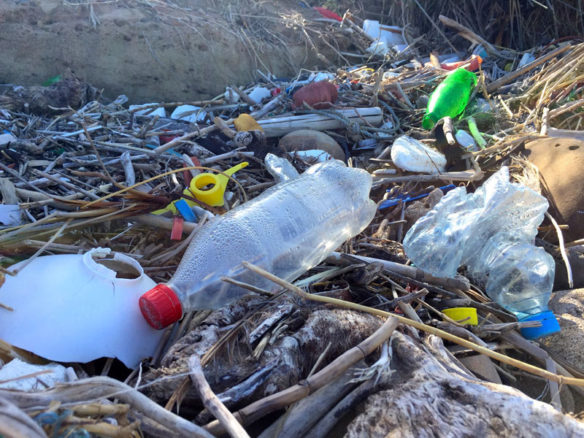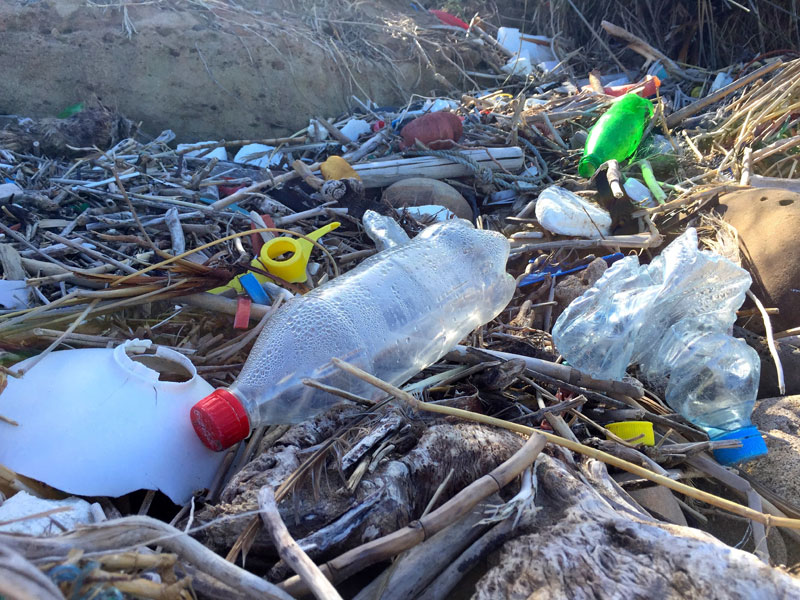
Plastic pollution. Photograph: © SAF — Coastal Care
Excerpts;
Communities fear impact on environment, as fossil fuel companies target region in multi-billion dollar push to increase global plastic production.
Gas giant ExxonMobil seal a $10bn agreement with the state-owned Saudi Basic Industries Corporation (Sabic) to build the world’s largest plastics facility on the Texas coast. The Exxon-Sabic project will fuel an anticipated 40% rise in global plastic production over the next decade.
The new plants are likely to have consequences for the climate and the air breathed in by people living on the US Gulf coast. An analysis of 184 planned chemical plants, many of them strung along the coast of Texas and Louisiana, showed they would collectively emit around 216m tons of greenhouse gases a year once complete…
Read Full Article, Guardian UK (12-26-2017)
U.N. environment chief warns “we’re facing an ocean Armageddon”; CBS News (12-04-2017)
Every year, we’re dumping at least 8 million tons of plastics into our oceans…
More than 8. 3 billion tons of plastics made: Most has now been discarded; Science Daily (07-19-2017)
Humans have created 8.3 billion metric tons of plastics since large-scale production of the synthetic materials began in the early 1950s, and most of it now resides in landfills or the natural environment, according to a study.
Plastic Waste Causes $13 Billion In Annual Damage To Marine Ecosystems, UN
Concern is growing over widespread plastic waste that is threatening marine life – with conservative yearly estimates of $13 billion in financial damage to marine ecosystems, according to two reports issued at the inaugural meeting of the United Nations Environment Assembly.
People may be breathing in microplastics, health expert warns; Guardian UK (05-10-2016)
People could be breathing in microparticles of plastic, according to a leading environmental health expert, with as yet unknown consequences on health…
Plastic Pollution: The Great Plastic Tide, Coastal Care ©-2009.
“The unprecedented plastic waste tide plaguing our oceans and shores, can become as limited as our chosen relationship with plastics, which involves a dramatic behavioral change on our part…”









